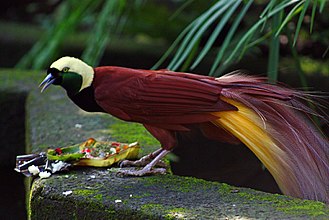Birds of Paradise are some of the most beautiful and intriguing birds in the world. Their vibrant plumage, elaborate courtship displays, and unique adaptations make them a fascinating group of birds to study. However, these birds are facing a range of threats, from habitat loss to hunting, that are impacting their populations. In this article, we will explore the various threats facing birds of paradise and the conservation efforts being undertaken to protect them.
Threats Facing Birds of Paradise
Habitat Loss: One of the biggest threats facing birds of paradise is habitat loss. These birds are found primarily in the rainforests of New Guinea and nearby islands, which are being rapidly destroyed by logging, mining, and agriculture. As these forests are cleared, the birds lose their nesting and foraging habitats, which can lead to population declines.
Hunting: Another major threat facing birds of paradise is hunting. In some areas, these birds are prized for their feathers and are hunted for use in traditional costumes and rituals. This hunting can have a significant impact on bird populations, especially if it is not regulated or monitored.
Climate Change: Climate change is also a significant threat facing birds of paradise. As temperatures rise and weather patterns change, the habitats of these birds may become less suitable for their survival. Changes in rainfall patterns and temperature can impact the availability of food and water, which can lead to population declines.

Conservation Efforts
Despite the many threats facing birds of paradise, there are many conservation efforts being undertaken to protect these birds and their habitats. Here are some of the most important:
Protected Areas: One of the most important conservation strategies for birds of paradise is the creation of protected areas. These areas can help to preserve the forests and other habitats where these birds live, providing a safe space for them to nest and forage. Many of these protected areas are managed by local communities, who work to ensure that the forests are sustainably managed and protected from threats such as logging and mining.
Education and Awareness: Another important conservation strategy for birds of paradise is education and awareness. By teaching local communities about the importance of these birds and their habitats, conservationists can help to build support for their protection. This can include working with schools and community groups to raise awareness, as well as engaging with traditional leaders to promote sustainable hunting practices.
Regulating Hunting: One of the key threats facing birds of paradise is hunting. To address this, many conservationists are working to regulate hunting practices and ensure that they are sustainable. This can include setting limits on the number of birds that can be hunted, as well as working with traditional leaders to promote sustainable hunting practices.
Restoration and Reforestation: Another important conservation strategy for birds of paradise is restoration and reforestation. By planting new trees and restoring degraded habitats, conservationists can help to create new nesting and foraging areas for these birds. This can also help to reduce the impact of climate change on these birds by providing them with a more suitable habitat.
Research and Monitoring: Finally, research and monitoring are critical to the conservation of birds of paradise. By studying these birds and their habitats, scientists can gain a better understanding of their biology and behavior, as well as the threats they face. This information can be used to develop more effective conservation strategies and to monitor the success of conservation efforts over time.
Conclusion
Birds of paradise are some of the most beautiful and fascinating birds in the world, but they are facing a range of threats that are impacting their populations. From habitat loss to hunting, these birds are facing significant challenges that require urgent action to address. However, there are many conservation efforts being undertaken to protect these birds and their habitats, from protected areas to education and awareness campaigns. By working together, we can ensure that these incredible birds continue to thrive in the wild for generations to come.
Help us Help Them! Think Wildlife Foundation is a non profit organization with various conservation initiatives. Our most prominent campaign is our Caring for Pari intiative. Pari is a rehabilitated elephant at the Wildlife SoS Hospital. 25% of the profits from our store are donated to the elephant hospital for Pari. Other than buying our wonderful merchandise, you could donate directly to our Caring For Pari fundraiser.
Written by: Sanghmitra Singh
